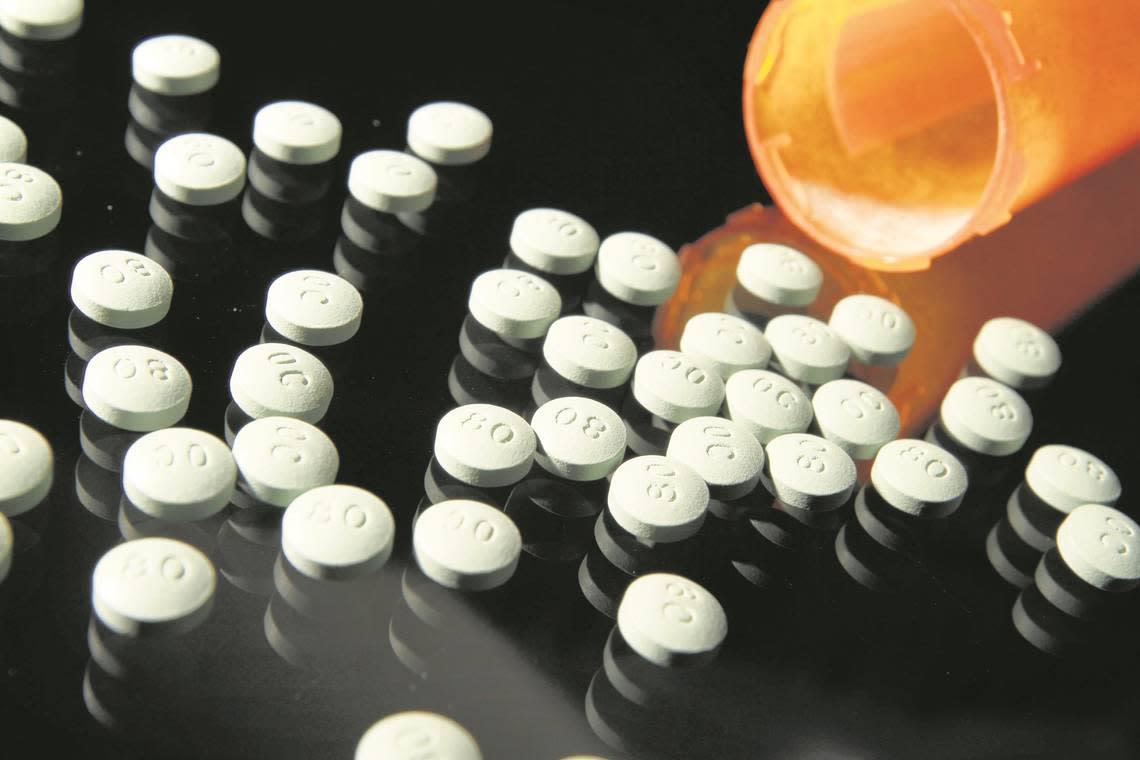Is your antidepressant putting you at risk during the heat wave? Here’s what experts say

With temperatures as high as the mid-90s in Lexington this week, and heat indexes even higher, people taking antidepressants are predisposed to increased side effects, experts warn.
Widely used antidepressants like Zoloft and Elavil can make people more sensitive to heat. These medications can cause body temperatures to rise to 106 degrees, leaving individuals at risk of overheating or heat stroke, according to MedicalNewsToday.
Antidepressants containing selective serotonin reuptake inhibitors (SSRIs) and tricyclic antidepressants (TCAs) are the culprits of these adverse effects, according to the Centers for Disease Control and Prevention website.
SSRIs and TCAs struggle with thermoregulation, the body’s heat regulation, in high temperatures. This can lead to impaired sweating and cooling. SSRIs can cause increased sweating, while TCAs cause decrease sweating, which inhibits cooling mechanisms.
When thermoregulation begins to fail, it can ultimately lead to hyperthermia, meaning the body temperature has risen to dangerous levels, according to MedicalNewsToday. Hyperthermia can lead to heat exhaustion, heat cramps or heatstroke.
What symptoms do I watch for?
The CDC highlights the following symptoms of heat exhaustion:
Heavy sweating
Cold, pale, and clammy skin
Fast, weak pulse
Nausea or vomiting
Muscle cramps
Tiredness or weakness
Dizziness
Headache
Fainting (passing out)
Symptoms of heat stroke are similar to heat exhaustion, but there are a few major differences to watch for:
High body temperature of 103 degrees or higher
Hot, red, dry or damp skin
Fast and strong pulse
Confusion
What do I do if this happens?
The CDC urges those experiencing heat exhaustion to move to a cool place, loosen clothes, put cool, damp cloths on their body, or take a cool bath and sip water.
If symptoms worsen or last longer than an hour, emergency services should be contacted.
If you suspect someone is having a heat stroke, you should call 911 right away, move the individual to a cool space, cover them with cool, damp cloths or give them a cool bath, and do not give them any fluids.
How do I prevent this during a heat wave?
The CDC suggests multiple ways you can combat heat-related illnesses during extreme temperatures:
Stay in air-conditioned areas
Contact the local health department for information about heat relief shelters
Limit outdoor activity to when it’s coolest, early morning or evenings
When outside, rest in shady areas
Limit exercise in high-heat areas
Stay hydrated, drink more fluids even if you aren’t engaging in activity
Stay away from sugary or alcoholic beverages, they can cause you to lose fluids
Use a buddy system when exposed to high temperatures, you may become confused or lose consciousness
Extreme heat will continue in Lexington until Saturday, June 22. For updates, resources, important contacts and the heat plan, visit the city of Lexington website here.


